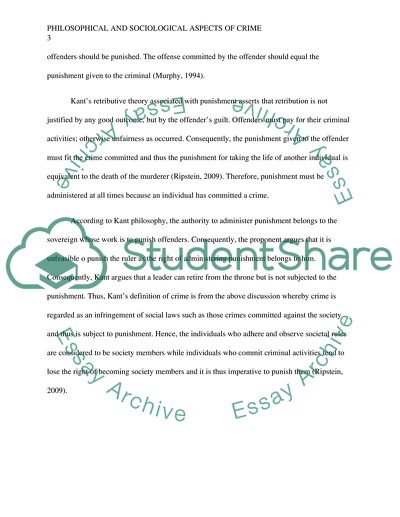Philosophical and Sociological aspects of crime and punishment Term Paper. Retrieved from https://studentshare.org/philosophy/1691859-philosophical-and-sociological-aspects-of-crime-and-punishment
Philosophical and Sociological Aspects of Crime and Punishment Term Paper. https://studentshare.org/philosophy/1691859-philosophical-and-sociological-aspects-of-crime-and-punishment.


